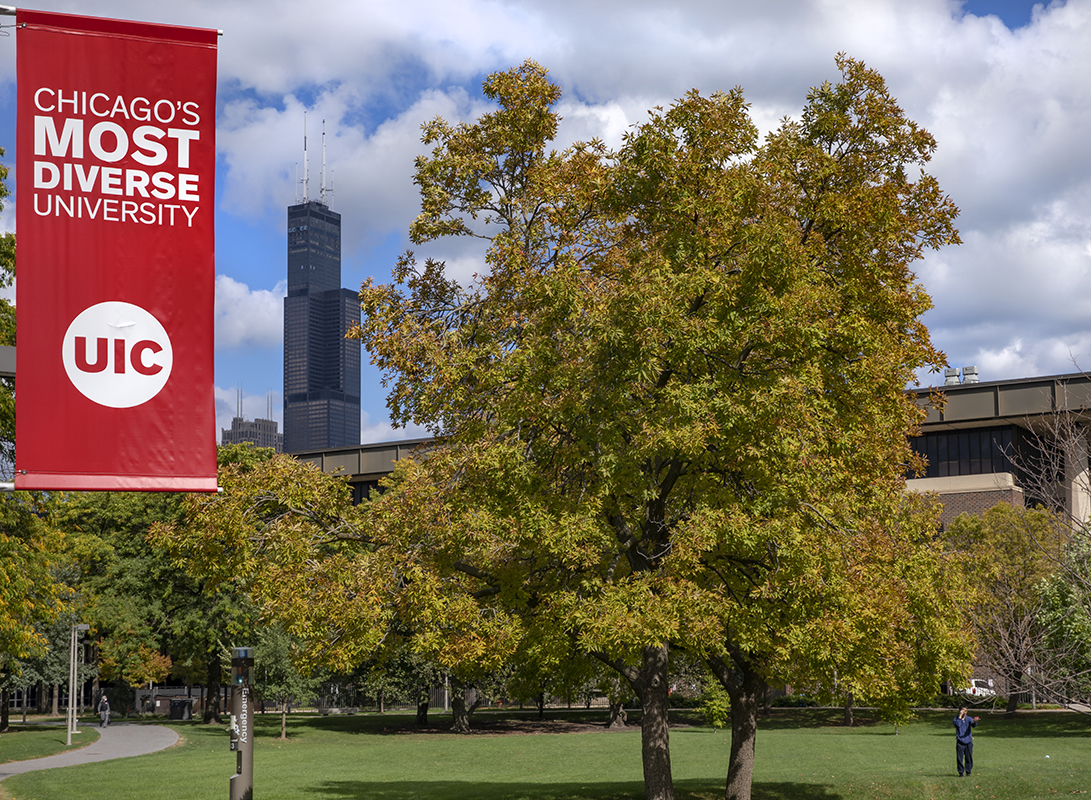UIC forming Army Research Center of Excellence
1

Professor Santanu Chaudhuri of UIC civil, materials, and environmental engineering and Argonne National Laboratory is part of a team launching EXtreme EnErgy Density, or EXEED, a U.S. Army Research Office-funded center dedicated to multidisciplinary, collaborative research on the discovery, characterization, and synthesis of next-generation energetic materials.
EXEED seek to create high-energy density materials from molecules subjected to extreme conditions such as high pressure. The center also will train scientists and engineers for the U.S. Department of Defense in the field of energetic materials. Chaudhuri and his Accelerated Materials Research Laboratory will develop the predictive model for the safety and performance of these materials.
Chaudhuri’s group already works with the Air Force Office of Scientific Research and the Department of Energy’s National Nuclear Security Administration laboratories on atomic and mesoscale simulations of matter under extreme conditions.
Chaudhuri will work closely with EXEED Director Russell J. Hemley, a professor of physics and chemistry at UIC and distinguished chair in the natural sciences. Hemley is an expert in extreme compression of matter where novel chemistry and bond formation happens. The two researchers will track new phase high-nitrogen, high-energy density energetic materials alongside Ksenija Glusac, associate professor of chemistry, and Tom Driver, professor of chemistry, who are experts in fast spectroscopy and photochemistry, synthetic organic chemistry, and large-scale simulations.
Students will participate in the center’s work, too. They will participate in experiments, perform modeling using Department of Defense supercomputers, and report on the fundamental science of matter under extreme conditions and how the ensuing chemistry leads to new phases of matter. They also will interact with researchers from the Army Research Lab and teams at the other affiliated labs.
The research center is funded by a $2.25 million five-year grant that aims to expand and diversify the U.S. Army’s research base through partnerships with historically Black colleges and universities and minority-serving institutions.